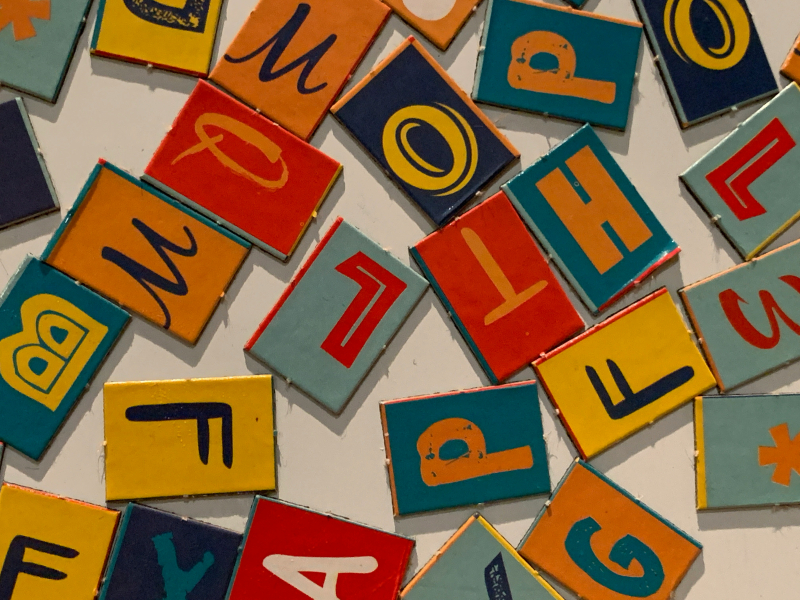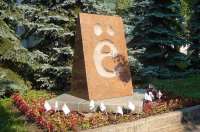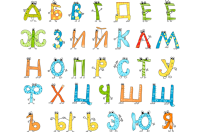Positive emotions
-
Ура (ura) – the Russian analog of “hurrah!;” it’s used to express joy, excitement, or encouragement (e.g., Ура! Я сдал экзамен – Hurrah! I’ve passed the exam). Another interjection you can use is еее (yeee);
-
Ого (ogo) / ух ты (uh ty) / вот это да (vot eto da) / ну и ну (nu i nu) – all of these are your go-to phrases if you’ve experienced something surprising or unusual (e.g., Ого! Я сдал экзамен – Wow! I’ve passed the exam);
-
Ха-ха-ха (ha-ha-ha) – if you still don’t know how to laugh in Russian, this is the way to go;
-
Фух (fukh) / слава богу (slava bogu) – these two are for expressing relief or gladness that something is over (e.g., Фух/Слава богу, экзамены закончились! – Phew!/Thank God! Exams are over);
-
Ути (uti)/ ми-ми-ми (mi-mi-mi) – for cuteness overloads (e.g., Ути, какой милый! – Aww! What a cutie!)
Negative emotions
-
Блин (blin) – though literally meaning a Russian pancake, you will more often hear this word when someone, say, does something wrong (e.g., Блин, я проспал экзамен – Damn it, I slept through my exam”). There’s also the word чёрт (chyort), which is okay to say, too. You can learn more about safe-to-use Russian swear words here;
-
Фу (fu) / фи (fi) – the first one masterfully conveys the feel of disgust when, for instance, you’re offered something you don’t like; and the second one allegedly adds bits of aristocracy to it (e.g., Фу, я не буду это есть – Ew! I’m not gonna eat that);
-
М-да (mda) – you can say that in situations that feel like a real facepalm moment (e.g., Экзамен завтра, а я не готов. М-да – The exam is tomorrow, and I’m not ready. No words);
-
Тьфу (t’fu) – this interjection, which imitates the sound of spitting, describes the feeling of contempt for someone or something (e.g., Тьфу, опять рыба – Fie! It’s fish again); and if repeated thrice (тьфу-тьфу-тьфу), it’s the Russian way of saying “knock on wood;”
-
Увы (uvy) – used to show that you’re sad or sorry over something that has or has not happened (e.g., Увы, я завалил экзамен – Alas! I failed the exam);
-
Ай-яй-яй (ay-yay-yay) – it’s a disapproving noise, which is primarily used with kids (e.g., Ай-яй-яй! Списывать – плохо – Tut-tut! Cheating is bad).
Positive or negative emotions
-
Ай – mainly fright, fear, or pain, but also amazement and praise (e.g., Ай, как больно – Ouch! It hurts; Ай, какая картина! – Wow! What a painting);
-
Ой (oy) – just as ай, you can use ой for expressing fright or pain; and it works for joy, as well (e.g., Ой! Сломалось – Oops! I broke it; Ой, какие люди – Oh, see who is here);
-
Ах (akh) – associated with sudden bursts of emotion: joy, grief, fear, regret, surprise, nostalgia, etc. (e.g., Ах, родной дом – Ahh! Home, sweet home; Ах, если бы это было правдой – Ahh! If only it were true);
-
Ох (okh) – regret, annoyance, sadness, grief, pain, surprise, admiration, etc. (e.g., Ох, мне нужно кое-что тебе сказать – Oh, I need to tell you something; Ох, рада была тебя увидеть! – Oh, it was great seeing you!);
-
Эх (ekh) – regret and indignation (e.g., Эх, нужно было лучше учить – Oh, I wish I studied harder);
-
Уф (uf) – relief (like фух) but also fatigue and exhaustion (e.g., Уф, я так больше не могу – Ugh, I can’t do this anymore; Уф, наконец-то это закончилось – Ahh, it’s finally over).
In addition to expressing emotions and reactions, interjections in Russian can also be used to request or demand something (e.g., эй (ey) – you can say эй if you want to get someone’s attention); plus, the greetings and parting words that you probably already know are also considered interjections: здравствуйте (zdravstvuyte) / привет (privet), спасибо (spasibo), or пока (poka) / до свидания (do svidaniya).
Way to go! Keep learning and practicing your Russian with our Speak Like a Russian series!




